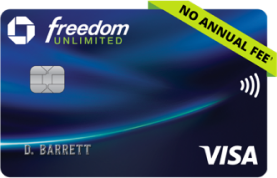![]()
![]()
![]()
![]()
What Credit Score Is Needed for a Capital Bank Card
Capital Bank offers a range of credit cards, each tailored to different financial needs and lifestyles.
To secure a Capital Bank card, a minimum credit score of 650 is typically recommended.
However, understanding the variations in credit score requirements based on card types, along with how individual financial circumstances can influence these needs, is crucial.
This article will explore the minimum credit score requirements for Capital Bank cards, how these requirements differ among various card offerings, and the potential impact of personal financial situations on credit eligibility.
Key Role of Credit Scores in Capital Bank Card Approval
A credit score is a numeric representation of your creditworthiness, typically ranging from 300 to 850, used by lenders like Capital Bank to assess the risk of approving your credit card application.
For most Capital Bank cards, a score of at least 650 is generally recommended, though specific products may vary based on your overall financial profile.
This score plays a vital role in determining both your eligibility and the type of card you may qualify for, especially if you’re applying for Capital Bank credit cards.
It reflects your history of payments, credit usage, and length of credit, influencing how lenders view your ability to manage new credit responsibly.
- Higher scores generally unlock better card terms
- Credit utilization history heavily impacts decisions
- Lower scores may result in denied applications
To increase your chances of approval, it’s essential to meet the minimum score requirements
Capital Bank Card Categories and Their Typical Score Ranges
Capital Bank offers a diverse range of credit card options designed to match various financial profiles, and each category comes with its own typical credit score requirement.
While entry-level cards cater to individuals still growing their credit, premium and secured cards target very different user needs.
Understanding these categories can help applicants find options aligned with their financial standing, increasing approval odds.
- Secured cards: 300–629
- Entry-level cash-back cards: 640–680
- Mid-tier rewards cards: 670–700
- Premium travel cards: 720+
- Business-focused cards: 700+
- Student starter cards: 630–670 *if no credit history*
| Card Category | Typical Credit Score |
|---|---|
| Secured Card | 300–629 |
| Entry-Level Cash-Back | 640–680 |
| Mid-Tier Rewards | 670–700 |
| Premium Travel Card | 720+ |
| Business Card | 700+ |
| Student Starter Card | 630–670 |
Beyond the Number: Income, Debt, and Overall Creditworthiness
While Capital Bank may suggest a minimum credit score of around 650 for card approval, actual decisions weigh heavily on income verification, debt-to-income ratio, and overall creditworthiness, often shifting the required score higher or lower.
Lenders evaluate whether your income can reliably support new credit based on job stability, consistency of earnings, and reported obligations.
For instance, even with a score below 650, an applicant with a high and stable income, modest existing debts, and a history of on-time payments may be approved.
Conversely, a score over 700 may not guarantee approval if income is sporadic or debt levels are high relative to earnings.
Three major financial indicators include:
- Consistent, verifiable income sources
- Low revolving credit usage
- Length and reliability of credit history
In one recent case, an applicant with a 640 score qualified for the Capital Bank Platinum Credit Card due to a documented six-figure income paired with minimal outstanding balances across all accounts.
In conclusion, while a credit score of at least 650 is advisable for obtaining a Capital Bank card, it’s essential to consider both card types and personal financial circumstances.
Being informed can help you choose the right credit card for your needs.






